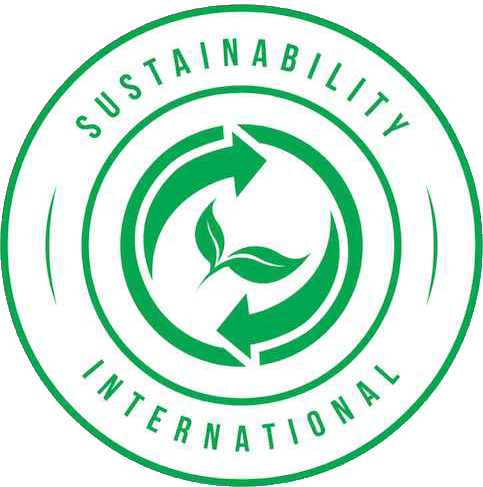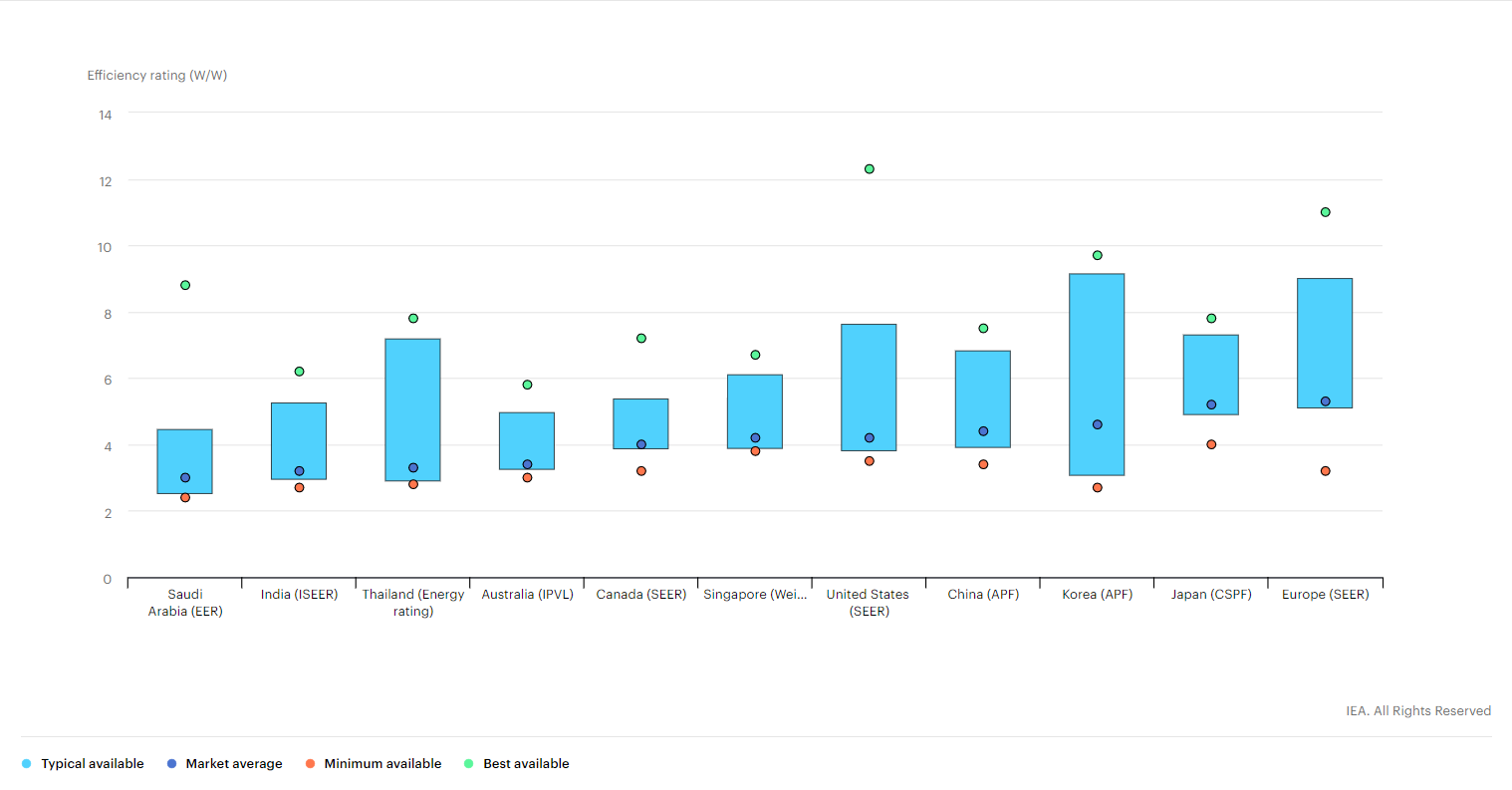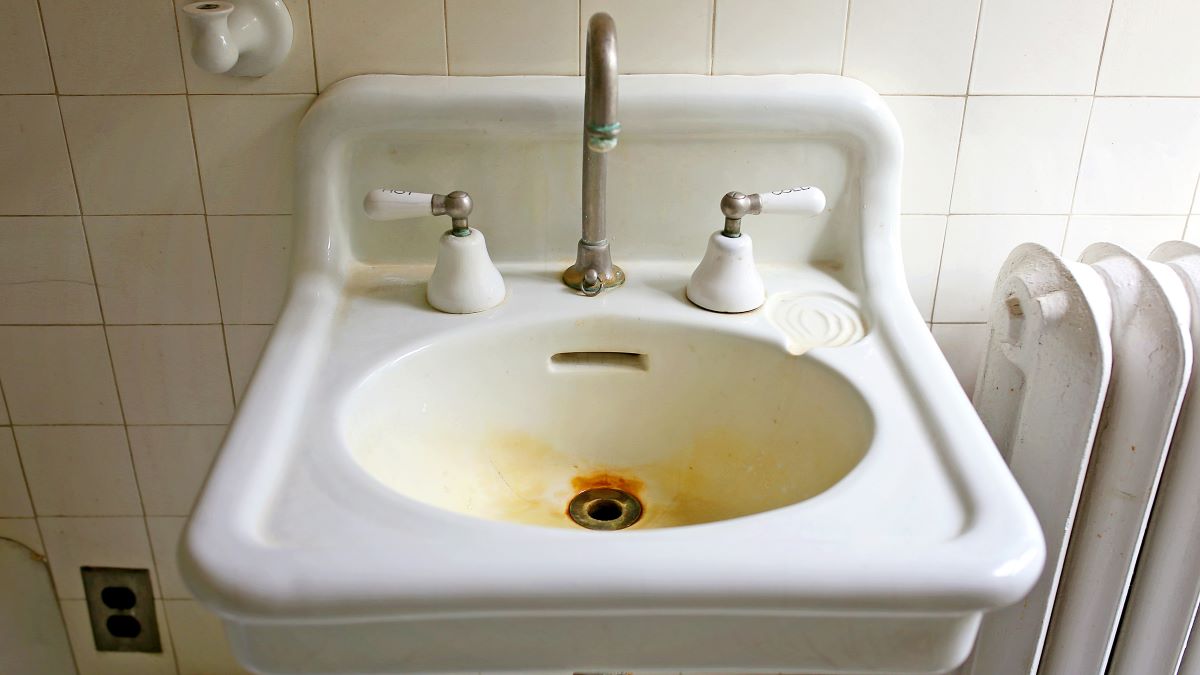A recent UN report suggests solutions to one of the most challenging problems facing the planet, how we keep our homes cool.
The report found that the cooling sector — air conditioning and refrigerants — produces about 8 billion tons of greenhouse gas emissions per year globally. For context, if all those pieces of cooling equipment were a single country, it would be the second-largest greenhouse gas emitter in the world behind China (a country that produces 10 billion tons every year).
The report also stressed how important it is to curb these emissions. Population growth, combined with rising incomes across Africa and Asia, will lead to huge growth in emissions from the cooling sector. By 2050, the UN projects total emissions from the sector to rise to 18 billion tons per year.

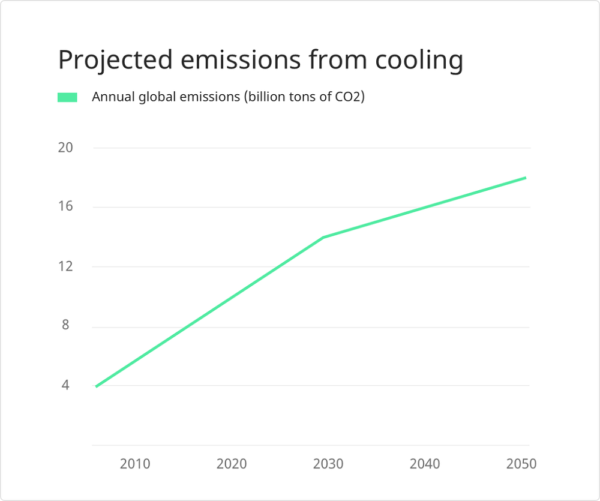
Source: Carbon Switch
The authors said that switching to climate-friendly air conditioners could cut 460 billion tons of emissions between now and 2040. If we don’t make the switch, however, cooling equipment could use up as much as half the carbon budget.
“If we deal with cooling wrong, we essentially cook ourselves,” Gabrielle Dreyfus, the cool efficiency program manager at the Institute for Governance and Sustainable Development, said last Friday in a press conference.
Is Your AC Unit or Fridge Part of the Problem?
According to the report, to reduce emissions by 460 billion tons, two primary changes must take place. First, we need to switch every piece of cooling equipment to the most energy-efficient option available. And we need to ban the use of hydrofluorocarbons (HFCs) immediately.
While government policy will be the most influential lever in encouraging that change, there are a number of actions everyone can take in their personal lives (beyond voting for politicians who will pass those policies).
Switching to Energy-Efficient Appliances
Right now, most cooling equipment sold isn’t the most efficient. In the United States, the most efficient model on the market is three times more efficient than the least. In order to cut emissions, we need to change that as quickly as possible.
Efficiency ratings of available AC units by regional metric. Source: IEA
If you’re in the market for a new refrigerator or air conditioning unit, it’s important to do your research and buy the most energy-efficient model you can afford. Efficiency comes at a cost, but the federal government and many states, cities, and utilities offer rebates and incentives for buying energy-efficient appliances. Some electricity providers offer “on-bill financing.” If they do, that means you can borrow money with little to no interest and pay the loan back through your utility bill each month.
But how about if your refrigerator or air conditioning unit is still working?
In the case of a refrigerator, it is more environmentally friendly to replace a working unit if it is more than 10 years old — even when accounting for the emissions it takes to produce the new equipment, according to a recent study by Dovetail.
In the case of air conditioning, you’re best off using an existing unit until it fails, then replace it according to Axios.
Banning HFCs
A lesser-known cause of climate change is hydrofluorocarbons (HFCs).
Prior to the 1980s, most AC units and fridges used chlorofluorocarbon (CFC) coolants as a refrigerating fluid. But then scientists discovered their link to ozone depletion. In 1987, world leaders gathered in Montreal and agreed to ban the use of these gases.
Most companies replaced CFCs with HFCs, which was bad news for the stability of Earth’s climate. As a greenhouse gas, HFCs are anywhere from 1,000 to 3,000 times more potent than CO2. And there are a lot of HFCs leaking out of the 9 billion pieces of cooling equipment. Today, HFCs account for 1% of global emissions.
In its recent report, the UN called on countries to ban the use of HFCs — such as the EU did at the beginning of this year — and sign the Kigali Amendment. But the Trump administration has refused to join in the ban.
Unfortunately, that makes it more difficult for consumers to buy air conditioners and refrigerators without HFCs. But for some, it’s still possible to take action.
Recycling Appliances with HFCs
If you can afford to replace your refrigerator or you’re replacing a broken AC unit, it’s important to dispose of the equipment responsibly. If done incorrectly, the HFCs will be released into the atmosphere.
The EPA runs the Responsible Appliance Disposal program and created a searchable map to find service providers who will make sure the HFCs are captured and disposed of safely.
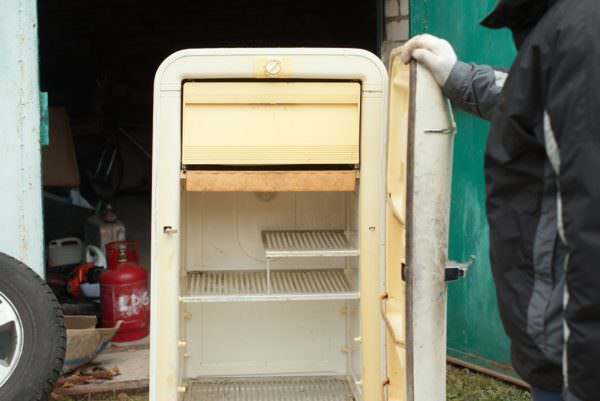
Buying Appliances With Safer Refrigerants
Despite the Trump administration’s refusal to sign the Kigali Amendment, it’s possible for consumers in the United States to buy air conditioning units without HFCs.
When shopping for a new air conditioner, it’s important to look at what type of refrigerant the unit uses and find the option with the lowest global warming potential (GWP). According to the EPA, the best available refrigerant options today for air conditioning units are R-290 or R-441A.
But unfortunately, when it comes to buying a new refrigerator, it’s not possible to buy a unit without HFCs today.
That means the best thing you can do is the thing that every environmentalist should do to have the biggest impact: Get involved politically and do everything you can to get climate leaders elected so that we can pass the bold policy required to prevent catastrophic climate change.
About the Author
Michael Thomas is the founder of Carbon Switch, a social enterprise that helps homeowners reduce their emissions and save money. His work has been featured in magazines like The Atlantic, FastCompany, and Quartz.
Feature image by triosolution1 from Pixabay
You Might Also Like…
July 30, 2020
Do Your Appliances Use Refrigerants the UN Wants To Ban?
July 30, 2020
10 Relief Remedies Using Essential Oils
July 30, 2020
Earth911 Quiz #54: Are You a Mobile Phone Recycling Expert?
The post Do Your Appliances Use Refrigerants the UN Wants To Ban? appeared first on Earth 911.
